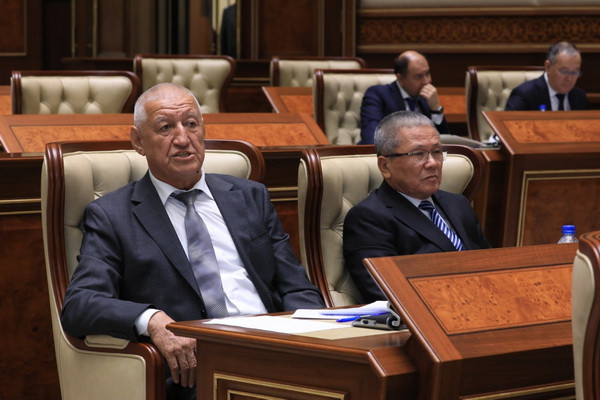
The state of work of state bodies with citizens’ appeals was criticized
Tashkent, Uzbekistan (UzDaily.com) -- At the 32nd plenary session of the Senate, the state of work with appeals in the system of state bodies and organizations in the first half of 2022 was critically discussed.
It was noted that consistent work is being carried out to ensure reliable protection of the rights and freedoms of citizens, the introduction of modern mechanisms for solving their problems.
In this regard, the Virtual and People’s Receptions of the President of the Republic of Uzbekistan, created on the basis of the relevant Decree of the President of the Republic of Uzbekistan, have become a system that connects citizens with the relevant authorities.
The Senate studied the state of work with appeals in the system of some state bodies and organizations in the first half of 2022 and criticized the shortcomings.
In particular, through the Virtual and People’s Receptions of the President of the Republic of Uzbekistan, state bodies and organizations, as well as khokimiyats, received about 773 thousand appeals. As a result of regular public receptions and critical discussions with the participation of authorized bodies, the number of applications decreased by 66 thousand or 8% compared to last year.
These appeals raised issues related to social benefits (80 thousand), dissatisfaction with the activities of government employees (58 thousand), enforcement, recovery of alimony and debts (51 thousand), material assistance and charity (46 thousand), employment (35 thousand), housing (33 thousand), gas supply (28 thousand), electricity (27 thousand), civil cases in courts (26 thousand), bank loans (23 thousand), poverty alleviation, family business development programs, activities of assistant khokims (22 thousand), road infrastructure (17 thousand), crime prevention (17 thousand), healthcare (16.5 thousand), law enforcement agencies (16 thousand) and drinking water ( 15 thousand). Especially, the number of appeals related to one-time material assistance to those in need, the execution of court decisions, natural gas and cadastre issues more than doubled compared to the same period last year.
Appeals in the economic sphere in the system of the Ministry of Economic Development and Poverty Reduction increased 48 times, in the Ministry of Agriculture - 13 times, in the Consumer Rights Protection Agency - 2.7 times, in the Ministry of Construction - 2.3 times, in State Tax Committee - 2 times.
Although the number of applications in the social sphere decreased by 18%, their number increased sharply in the State Inspectorate for the Quality of Education - by 108% and in the system of the Agency for the Development of Medical and Social Services - by 67%.
The number of appeals in the judicial and legal sphere in the system of the Ministry of Justice increased to 58%, in the Ministry of Internal Affairs - by 20%, in the Bureau of Compulsory Enforcement - by 20%.
In addition, the largest number of applications to the system of khokimiyats is observed in the city of Tashkent, Kashkadarya and Surkhandarya regions (14-18 thousand).
In the reporting period, the level of positive resolution of appeals was low in the system of the Ministry of Agriculture (6%), Navoi Mining and Metallurgical Plant JSC (12%), the Committee for Religious Affairs (18%), the Ministry of Higher and Secondary Specialized Education and the Ministry of Construction (19%), as well as in Andijan region (11%), in khokimiyats of Namangan (15%), Navoi (16) and Kashkadarya (19%) regions.
The senators criticized the fact that the analysis of the above appeals in the system of some state bodies and organizations, as well as in the activities of working with appeals in khokimiyats, there are problems that should be paid attention to, and the analysis of appeals in this regard was not carried out, and work on internal control in this area is not organized at the proper level.
As a result of the discussions, recommendations were given on how to take measures to eliminate directly in the mahalla or in the lowermost system of systemic problems and factors for which the population is most forced to apply to ministries and departments and local government bodies, the systematic organization of dialogue and field receptions of leaders at all levels , as well as taking measures to resolve appeals on the spot, promptly study appeals in social networks and expand the practice of timely response to them.
Taking into account the recommendations made as a result of the discussion, a resolution of the Senate was adopted.